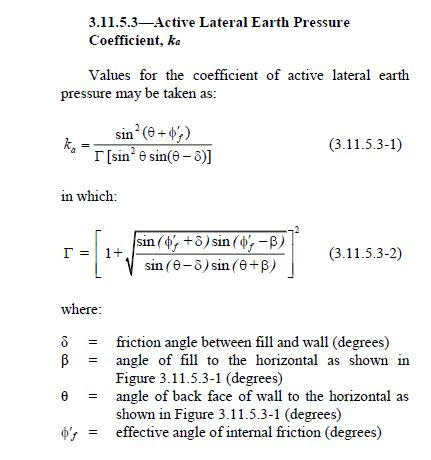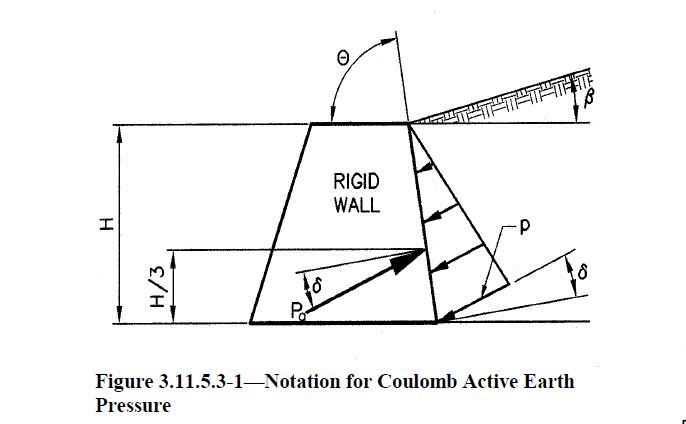mar2805
Structural
- Dec 21, 2008
- 375
Hi!
Please see attached image.
How to calculate the horizontal pressure that the backfilled material will have on the retaining wall?
The material will be deposited and will have this trinagular shape behined the wall.
Usualy we are presented with problem that say that the material is compacted behined the wall up to the walls height.
This is a bit different.
Can you help
Please see attached image.
How to calculate the horizontal pressure that the backfilled material will have on the retaining wall?
The material will be deposited and will have this trinagular shape behined the wall.
Usualy we are presented with problem that say that the material is compacted behined the wall up to the walls height.
This is a bit different.
Can you help


